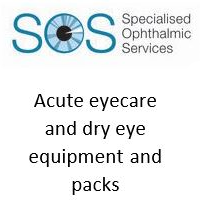Professional Matters Optometry & Dispensing
Launching ‘Transforming eye care for older people’ online policy hub
Launching ‘Transforming eye care for older people’ online policy hub
The AOP highlights the critical role of optometrists in addressing the healthcare needs of an ageing population, how to reduce inequalities in provision and improve care outcomes
The Association of Optometrists (AOP) has launched a new online resource, ‘Transforming eye care for older people for better health’, addressing the policy challenges in eye care for older people and detailing recommendations for improved care and health outcomes.
The resource outlines the vital role optometrists can play in tackling the healthcare constraints experienced by an ageing population, as well as highlighting growing inequalities in eye care, and how this affects the likelihood of accessing support and rehabilitation services.
The AOP is calling for simple policy changes to enhance support for older people’s eye health, exploring recommendations to ensure better services, improve quality of life and alleviate the strain on other areas of the healthcare system, such as GPs, A&E and hospital departments.
Five areas have been identified to better utilise optometry to transform services for older people:
- Optometrists should be able to certificate vision impairment. Many visually impaired people in the UK miss out on benefits due to delays in the Certificate of Visual Impairment (CVI) process. Allowing optometrists to complete CVI applications could improve access to support and simplify the system.
- Low Vision Services (LVS) should be available to all people in the UK, regardless of where they live. LVS offer essential practical and emotional support for people with vision loss, improving quality of life and addressing challenges like mental health and social isolation. However, access varies across the UK, and they need to be commissioned consistently to ensure equitable access. Ensuring at least one operates in every ICS/Health Board area could significantly enhance access and support.
- Domiciliary eye care should be easier to provide. Domiciliary optometrists provide vital eye care to vulnerable individuals who cannot travel. Despite their importance, the service faces challenges such as inconsistent funding, geographic disparities, and restrictive Pre-Visit Notification requirements, which delay care. Addressing these barriers is essential to ensure timely access to eye care and improved quality of life for those in need of these services.
- Vision checks should be a core part of assessments in frailty and falls services. Visual impairment significantly increases fall risk, yet vision assessments are underutilised in falls prevention pathways. Integrating mandatory optometrist referrals into falls rehabilitation services and enabling better coordination among health and social care providers could significantly reduce the impact of falls and improve outcomes for older people.
- The public health and disease prevention potential of optometrists should be fully utilised. Visual impairment worsens health outcomes for people with long-term conditions like dementia and diabetes, yet sight tests are rarely included in patient pathways. Improved connectivity between secondary and primary care and better integration of optometry services would enhance care coordination and reduce health risks for older people.
Adam Sampson, Chief Executive of the AOP, said: “Optometrists already play a crucial role in tackling healthcare challenges, which include meeting the health needs of a growing ageing population. Through simple policy changes, optometry can have an even bigger impact on the quality of life for older people. Our online hub provides a clear and actionable framework, offering solutions to alleviate pressure on the NHS while enhancing health outcomes for older people. It is imperative that the role of community optometry is recognised, and decisive action is taken to implement the recommendations outlined.”
Dr Peter Hampson, AOP Clinical and Policy Director, said: “Optometrists are well placed to play a greater role in supporting older people’s eye health, but their skills are currently being underutilised within the current healthcare system. By enabling more integrated systems and streamlined pathways, we can enhance disease prevention, improve frailty and falls services, and provide better management of long-term conditions. These changes represent an opportunity to significantly benefit vulnerable populations while contributing to the economic sustainability and efficiency of the NHS.”
To read more about the case for change and the AOP’s key policy asks, visit www.aop.org.uk/eyecareforolderpeople.






















